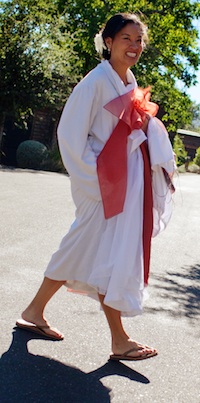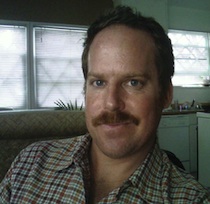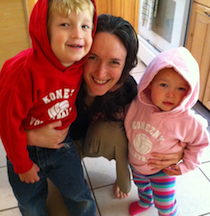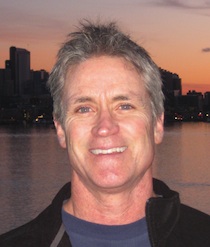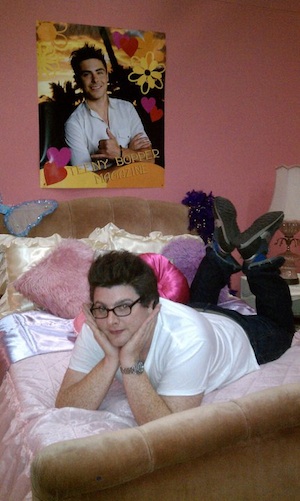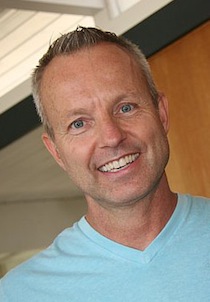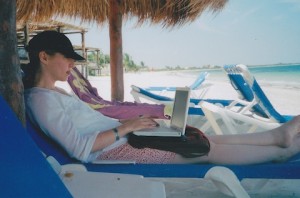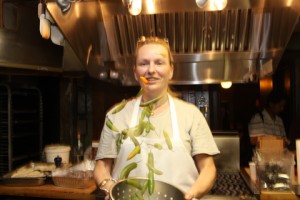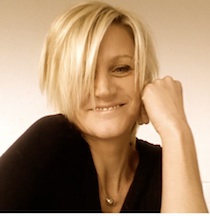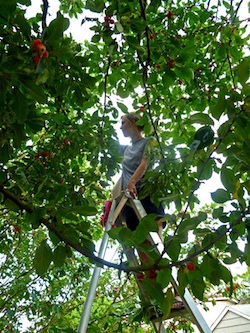 Listen to the interview by clicking the arrow on the audio player below.
Listen to the interview by clicking the arrow on the audio player below.
For the most part, I interview people about the work they do to make a living. After all, it is that challenge—how to find work that feels meaningful and pays the bills—that preoccupies so many of us. But occasionally I also talk to people about the work they do for fun. Nancy Gohring, for example, picks fruit.
Nancy is the co-founder of City Fruit, a non-profit that coordinates the harvest of thousands of pounds of fruit every year from Seattle backyards. A small portion of the fruit is sold to neighborhood restaurants to help offset the organization’s operating costs, but most of the haul is donated to local soup kitchens and food banks.
Some jobs are hard to understand and difficult to justify, but the rationale for backyard harvesting can be grasped in an instant. That’s why I wanted to speak to Nancy: I wanted to know how she found her way, in this same crazy world that the rest of us inhabit, to such eminently sensible work.
About Nancy Gohring: When she’s not picking fruit, Nancy Gohring works as the Seattle correspondent for IDG, a news service dedicated to technology coverage. Nancy’s reporting has been featured in The New York Times, The Seattle Times, Wired, The Dallas Morning News, and other media outlets. Nancy began working with City Fruit in 2008, when Gail Savina (the organization’s current Executive Director) assembled a group of like-minded people interested in developing a new approach to fruit tree harvesting.
Podcast: Download
